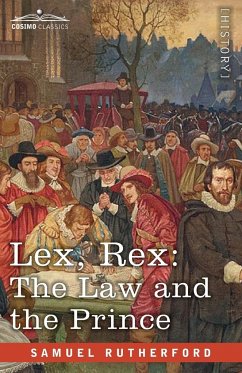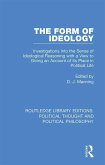"What is warranted by the direction of nature's light is warranted by the law of nature, and consequently by a divine law; for who can deny the law of nature to be a divine law?" -Samuel Rutherford, Lex, Rex, The Law and the Prince (1644) Lex, Rex, The Law and the Prince (1843) by Samuel Rutherford was originally published in 1644 and focuses on Church-State relations, constitutionalism, and limited government. Rutherford's ideas were so controversial that he was charged with high treason, and the book was burned at Oxford University. This edition is a replica of the 1843 version and includes a related work, De Jure Regni Apud Scotos-A Dialogue concerning the Rights of the Crown in Scotland (1799) by George Buchanan, originally published in 1579 and translated from Latin to English in this edition.
Hinweis: Dieser Artikel kann nur an eine deutsche Lieferadresse ausgeliefert werden.
Hinweis: Dieser Artikel kann nur an eine deutsche Lieferadresse ausgeliefert werden.








